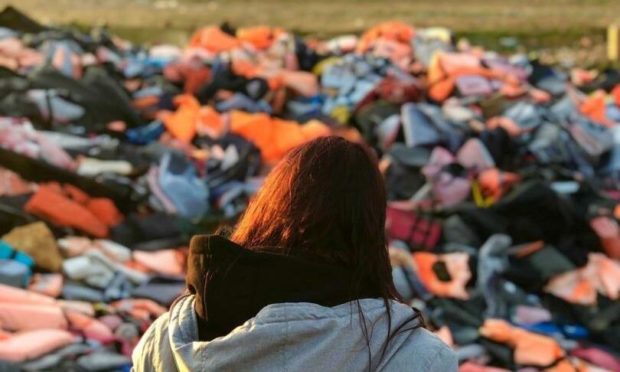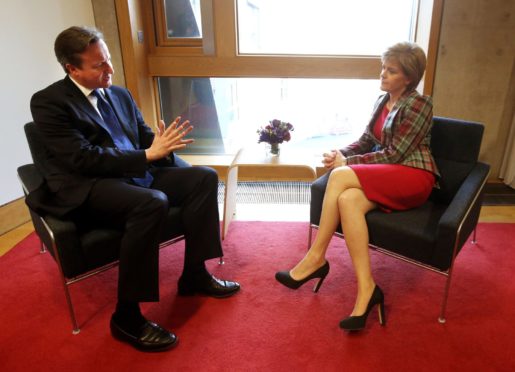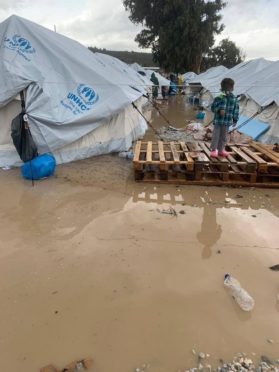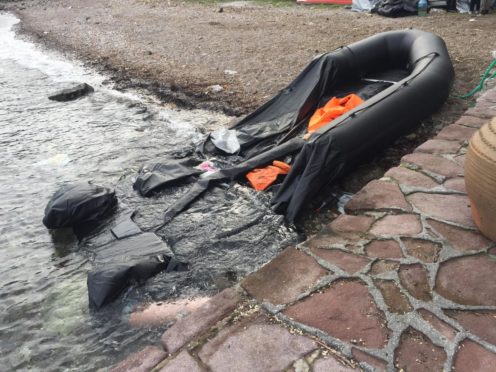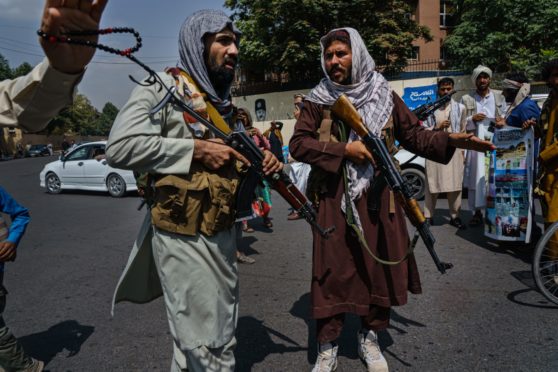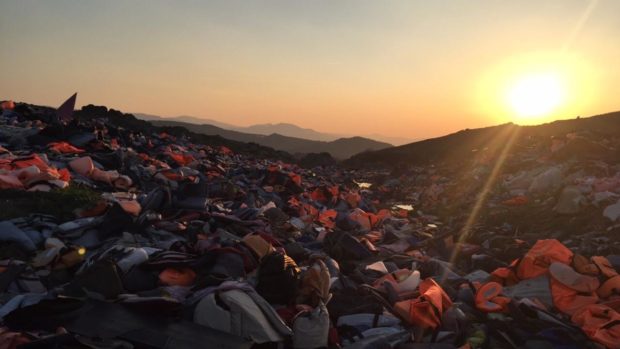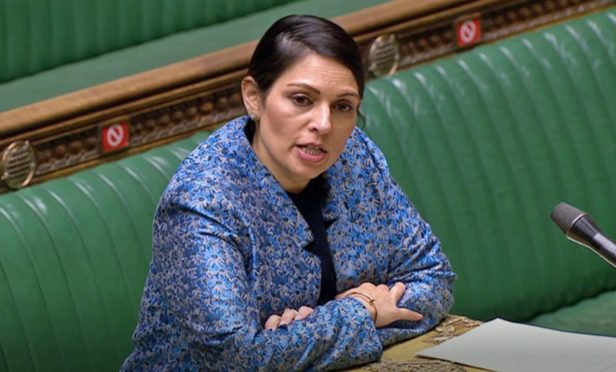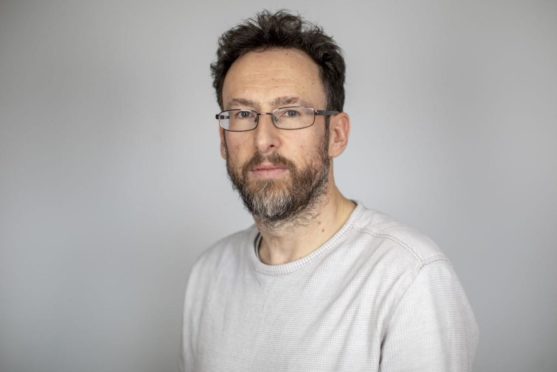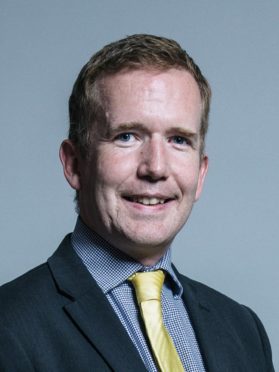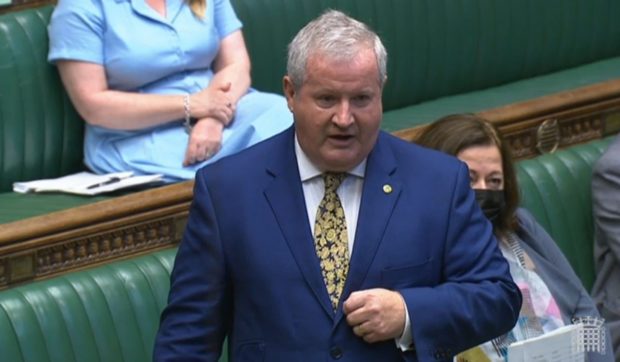The UK Government says it will take in up to 20,000 Afghan refugees following the Taliban’s takeover of Kabul.
Currently there are 2.5 million refugees from Afghanistan, which makes them the second largest refugee population in the entire world.
This comes after 20,000 Syrian refugees were resettled in the UK between 2014 and 2020 – but what lessons can be learned from the Syrian refugee crisis when it comes to resettling Afghan refugees fleeing from the Taliban?
What was the Syrian resettlement scheme?
In September 2015 both First Minister Nicola Sturgeon and former Prime Minister David Cameron made commitments to help those displaced by the civil war in Syria by launching the Syrian Vulnerable Persons Resettlement Scheme.
At the time, the prime minister committed to resettling 20,000 Syrian refugees in the UK and to providing financial aid in the region.
The scheme also provided increased funding per person to encourage local authorities to have refugees settle in their area.
By November 2017, 2,000 Syrian refugees had arrived in Scotland after the first minister committed to resettling 10% of the total number of refugees arriving in the UK.
Since the start of the scheme, 3,000 Syrian refugees have been settled in all 32 of Scotland’s local authorities.
Challenging prejudice and misconceptions
Suzanne Milne from Scone, who has previously been out to work in the Moria refugee camp on the Greek island of Lesvos and regularly sends out clothes and other vital provisions to refugee camps, says challenging misconceptions needs to be a top priority when it comes resettling Afghan refugees.
She said: “The whole thing is just a nightmare.
“What is necessary from the UK Government is explaining to people who have misconceptions about refugees coming here and getting everything handed to them on a plate, that is not the case.
“One refugee in particular arrived in the UK in December and went to a detention camp for four months in the south of England.
“They were then moved to a shared house where they couldn’t leave without permission.
“One day there was a knock on the door at midnight and they were told to get on a bus the next morning.
“They asked where to, and was told ‘the bus driver will tell you’, and they were taken to Newcastle and put up in a hotel where they were again not allowed to leave without permission.
“A lot of the derogatory comments online are asking ‘why is it all young men?’, for example.
“I asked a young man in his early 20s what made him leave, and he said it was because the militia were coming to his house asking him to fight.
“They put their hands to his throat and said ‘we will kill you’, which is horrific, but that’s not before they sit you down and kill your family first.
“That is why they are leaving, it is because they are being forced to go and fight.
“One Afghan refugee, his father was a doctor and when America first went to Afghanistan, people couldn’t afford to pay for medical treatment so his dad treated them and was killed.
“The family started to have people from the Taliban following them to say ‘we will help you avenge your father’s death’, and as a boy you would be expected to ‘step up and be the man’.
“At the same time they were getting notes through their door from the Americans asking for information on the Taliban in return for protection.
“Their mum said it was no longer safe so she paid to take them out of the country.
“He was swiftly separated from his brother before he made it to the UK.
“Instead of when families move in having a big ‘who are these people, are they the terrorists we see on TV?’, get them involved in helping them.
“People say they are coming and stealing jobs, but these jobs would not be empty if we had the people to fill the jobs.
“It is horrific and heartbreaking to read derogatory comments online, and I hope this prejudice is just ignorance and misinformation from people who have never met a refugee in their life.”
Make family reunions happen faster
Many also say family reunification needs to be done quicker this time around.
Ms Milne continued: “Around 70% of the refugees arriving in Greece are Afghan, the trouble has been going on for years and has been escalating in the last year and a half.
“A lot of people coming to Greece are unaccompanied minors whose families are not with them, or perhaps they have relatives in a different country.
“They have to go through so many hoops to prove they are related and then to be reunited.
“It is important if families are separated that reunification is a top priority.”
A spokesperson for the Scottish Refugee Council added: “We need to see a commitment to widening family reunion laws.
“There are many UK citizens desperately worried about family members in Afghanistan.”
Ditch the Nationality and Borders Bill
Many have hit out at the UK Government’s Nationality and Borders Bill when discussing what can be learned from the Syrian refugee crisis.
Opponents of the bill, brought forward by Home Secretary Priti Patel and currently going through the committee stage at the House of Commons, say it will strip many refugees of crucial rights such as being able to settle in the UK permanently, family reunion and access to public funds, as well as criminalising many because of how they arrived in the UK.
Steve Valdez-Symonds, refugee and migrant rights director at Amnesty International UK, says the Afghan refugee resettlement programme must focus on saving as many lives as possible.
He said: “It’s imperative that the current evacuation programme seeks to save as many lives as possible, but just as important will be the need for neighbouring countries – Pakistan and Iran in particular – to keep their borders open to people seeking asylum.
“The government must also radically rethink its wider asylum policy, especially proposed new measures which would criminalise those seeking asylum outside of these relatively limited resettlement schemes.
“Britain must not bar entry to its asylum system for the relatively few people – including Afghans – who come here often by traumatising and dangerous journeys.
“The UK’s message to Pakistan, Iran and others should be: ‘We will not turn refugees away, and neither must you’.”
The SNP is also urging the UK Government to abandon its Nationality and Borders Bill in light of the Taliban’s takeover in Afghanistan.
Shadow Home Secretary Stuart McDonald MP said: “There can be no doubt that, given the current humanitarian crisis unfolding in Afghanistan, the hateful, anti-refugee Nationality and Borders Bill must be scrapped immediately.
“Not only does this Tory bill breach the UK’s obligations under human rights law and the 1951 Refugee Convention, it has also been widely condemned by the UN and numerous refugee charities.
“Scotland is ready to do our bit to support Afghan refugees.
“The people of Afghanistan need our help more so now than ever before – we cannot let them down.”
Support refugees with their mental health
Following the experiences of resettling Syrian refugees, more of a focus could be put on helping Afghan refugees with their mental health, particularly if they have experienced trauma.
Suzanne Milne said: “Before I went to Lesvos I thought I had an understanding of what was going on and I thought the majority of people there would be Syrian.
“I didn’t know what was going on in Afghanistan and nothing prepared me for what I witnessed and experienced.
https://www.thecourier.co.uk/news/scotland/2457784/sturgeon-scottish-government-ready-to-play-full-part-to-help-afghan-refugees/
“We need to make sure we have the support in place for potential mental health issues.
“A boat journey alone is traumatic, every single person coming off a boat probably has PTSD.”
Take in even more refugees
Many are also calling on the UK Government to take in even more refugees from Afghanistan than they have promised to do.
Ian Blackford MP, the SNP’s Westminster leader, says the Afghan resettlement scheme “doesn’t go anywhere far or fast enough”, to protect vulnerable Afghan citizens, and says the UK should be committing to resettle 35,000-40,000 Afghan refugees instead of just 20,000.
A spokesperson for the Scottish Refugee Council also said: “Scotland played a key part in the success of the Vulnerable Persons Syrian Resettlement Scheme, resettling 3,000 people across its communities.
“Scotland is ready to play this role again, and its communities will be enriched by those who settle here from Afghanistan.
“It is a sad state of affairs that it took a crisis like this for the UK Government to commit to refugee resettlement.
“Resettlement should not be an emergency response, but an ongoing commitment to the world’s most vulnerable people.
“We urgently need the government to build a refugee protection system which commits to resettling 10,000 refugees from across the world every year.”
